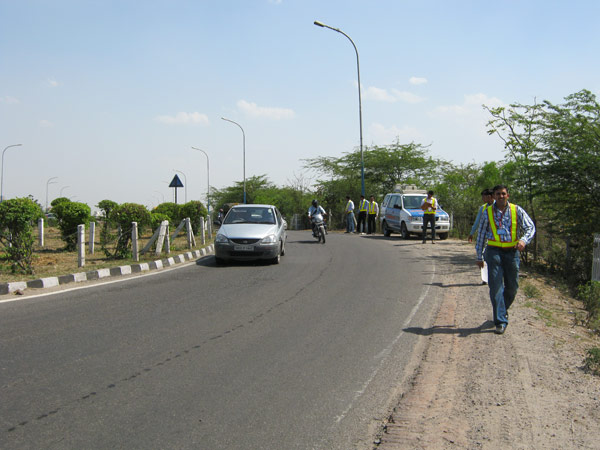There has been a lot of debate on the benefits of privatising our road network in the UK. The government has been considering the benefits that private contractors could bring to our most used roads if they were able to charge a toll for road usage in return for maintenance and improvements. After careful consideration, the government decided not to go with a toll system. Instead, they would work on paying contract owners a fee that is relative to the number of cars that use the road. The success of private enterprise was tested in school building and railway maintenance and they have both benefitted from private initiatives.

Concrete Improvements in Safety
Any contracts are likely to be long term and there have already been tests to establish key areas where costs can be cut and safety improved. The idea to move away from steel barriers on our larger roads to a concrete barrier was controversial at first. After extensive testing, the idea seems more practical. Concrete barriers could replace our steel barriers on motorways and they can be expected to last up to three times as long as steel barriers with little or no maintenance. Steel needs to be maintained on a regular basis and this has meant disruption to the road system. Where concrete is used, there has been no need for maintenance even after inspection following an impact.
The costs of a one-time concrete installation would be far less than the costs steel and privately contracted firms have suggested using concrete step barriers would be the first improvement made. The belief is that concrete barriers will better protect against serious accidents where there is a possibility of crossing the directional divide in centre of our motorways. There was a study by the Transport Research Laboratory, which created a report that investigated the costs implications of using concrete barriers. They found that after 36 impacts in to the median barriers made of concrete on the M25, there was no need for repair work.
Improvements in Costs
Even without the issue of repair due to impact, concrete barriers compared favourably to metal when evaluated using a whole of life, fifty-year comparison. Impact damage would further improve arguments for concrete barriers. The most cost effective of all concrete barriers was found to be the Dutch Step Barrier, which also acted as a containment system that would remove the risk of cross over incidents. Cross over accidents involve vehicles breaching the central barrier system and crashing with oncoming traffic. The Dutch Step system is effective against high impact HGV incidents and this is when most fatalities occur.
Low Installation Time
One of the major benefits of installing the concrete barriers is the speed at which they are constructed. With consistent concrete pouring, there have been substantial sections of our motorway’s barriers constructed in record time. The M1 has already benefitted from more than 23km of concrete barriers and there have been reports, that as much as half a kilometre was laid in a single seven-hour period. The project is reliant on the continual supply of concrete mixers to pump fresh concrete in to specialist machines used to construct the barriers. As well as barriers, there are drainage ditches laid alongside which further increased the demand for a consistent flow of concrete.
Amazingly, this was achieved with just the fast lane in either direction closed off to minimise the disruption to traffic. Concrete deliveries and paving gangs used the space of the two lanes along with the central section between the roads efficiently to produce the barriers in record time.
Projects of this kind are expected to increase around the UK and the supply of concrete mixers will be critical to any success story.
Concrete Barriers Are Preferred To Metal

